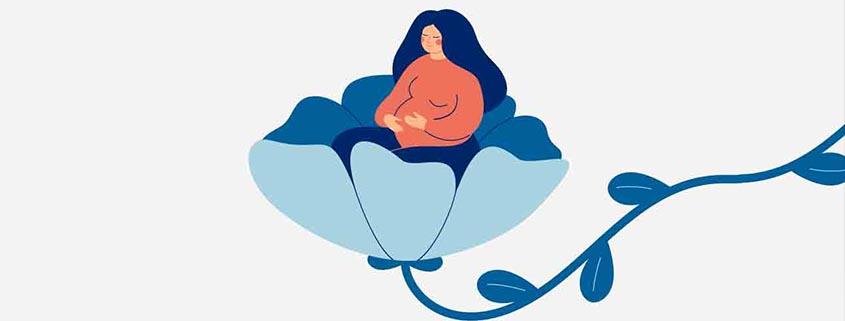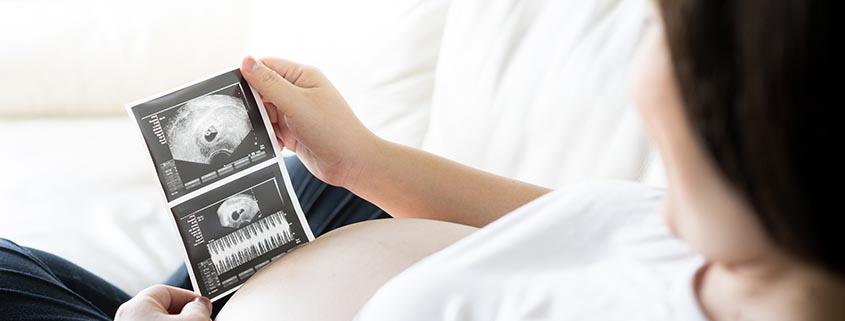Pregnancy is a beautiful period in a woman’s life and an enjoyable one as you look forward to the last leg of the journey before you can hold your little one in your arms. As soon as you spot the two lines on the Prega News kit, you start looking forward to the day you will meet your little one – and we are here to help you on the journey. So, if you are in your third trimester of pregnancy, these are some changes that will take place. Read on to know more and stay healthy!
What is the third trimester?
The last leg of the pregnancy or Week 27 to end of pregnancy is termed as the third trimester of pregnancy. For some women this can be week 36, while for others it may be less or more.
Third trimester pregnancy symptoms
In the last trimester, your body grows to accommodate the full-grown baby and prepare for birth. This is the time you will notice many changes like below:
Braxton Hicks Contractions
Braxton Hicks contractions are mild, irregular contractions that can be felt as a tightening in your lower abdomen. Occurring generally after physical activity or sex, these subside by themselves and also take place in the second trimester. Contact your doctor if they become regular and more severe.
Fatigue
Your body is now fully grown as a home for the new baby and as your baby grows and prepares for birth, you will notice fatigue and shortness of breath. Take frequent breaks and get ample rest. Also find a good posture at all times, to avoid putting pressure on your lungs.
Frequent urination
As your baby moves lower into your abdomen, you will feel extra pressure on your bladder and the frequent urge to pee. You may also notice urine leaking when you sneeze or laugh too hard. If the leakage is thicker or coloured, contact your doctor immediately.
Hemorrhoids and Varicose veins
In your third trimester of pregnancy, your body is pumping extra blood which may cause your veins to become prominent as red or purple veins. Also known as spider veins, you may notice them in your neck and hands. Noticing swollen veins in your legs at this time, also known as varicose veins is also common. Hemorrhoids are also very common in the third trimester and doctors can prescribe medicines as well as natural remedies to ease the pain.
Heartburn and indigestion
Pregnancy hormones cause stomach acid reflux leading to heartburn – this can be controlled with eating small meals, avoiding fried and spicy food and sipping on digestive tea.
Backache
As your belly pulls your body forward, noticing back pains (Ranging from mild to severe) is pretty common in the third trimester. Look for comfortable positions and use proper support to alleviate the pain.
Stretch
Marks Your body has grown and nourished a baby and your skin is stretching to do the same – noticing stretch marks is very usual at this stage and can be reduced with proper moisturization.
Precautions during third trimester of pregnancy
To ensure a safe and healthy delivery, you can follow the below precautions during the third trimester of pregnancy:
- Avoid strenuous activities and exercises
- Avoid lifting heavy weights
- Keep a check on your blood sugar, blood pressure and other vitals
- Avoid unhealthy, raw and unpasteurized food products
- Keep a lookout for any unusual vaginal discharge etc
- Monitor baby’s kicks and movements and report any changes
- Avoid alcohol, smoking and other harmful substances
- Avoid long periods of travel in cars, planes etc
Psychological changes during third trimester of pregnancy
As the day to deliver your baby gets closer, your hormones also do the work and the natural anxieties about labour kick in at the time. Here are the psychological changes during third trimester of pregnancy that you may notice:
- Fear and anxiety about the labour and delivery is a common occurrence – talk to loved ones and people who have positive stories to share for some reassurance
- Vivid and confusing dreams are also common at this stage and it’s best to not overthink it but laugh it off with your partner
- Frequent mood swings and sudden dips in the mood are also noticed and you can talk about it with your loved ones
- You can also get more emotional at this stage and be more sensitive than usual and that’s not something to be worried about
FAQ
What trimester do you gain the most weight?
You gain the most weight in the third trimester of pregnancy.
What should you not do in your third trimester?
Avoid strenuous exercises, long travel plans, unhealthy food etc. in the third trimester.
What are the symptoms of third trimester pregnancy?
Fatigue, stretch marks, false contractions, frequent urination and backache are some of the common symptoms of the third trimester of pregnancy.
Is the 3rd trimester hard?
The third trimester can be tiring and exhaustive but it also brings you closer to the day when you will get to meet your little one.
Do hormonal changes occur in the 3rd trimester?
Yes, hormonal changes are common throughout pregnancy.
Can due date change in the third trimester?
Due dates can change in the third trimester and your doctor will give you an approximate date based on your reports and scans. However, this can still be changed if your water breaks and you experience contractions.
Do you get more emotional in your third trimester?
Yes, hormonal changes during pregnancy can cause you to be more sensitive to things at this time.
Is feeling shaky during pregnancy normal?
A dip in blood sugar, changed centre of gravity and additional weight gain can make you feel dizzy or shaky during pregnancy.
Disclaimer:This blog solely intended for the educational/informational/awareness purposes and is not a substitute for any professional medical advice, diagnosis or treatment. Please consult your doctor/healthcare professional before acting on the information provided on the blog. Reliance on any or all information provided in the blog, is solely at your own risk and responsibility. Mankind Pharma Limited shall not be held liable, in any circumstance whatsoever.

































